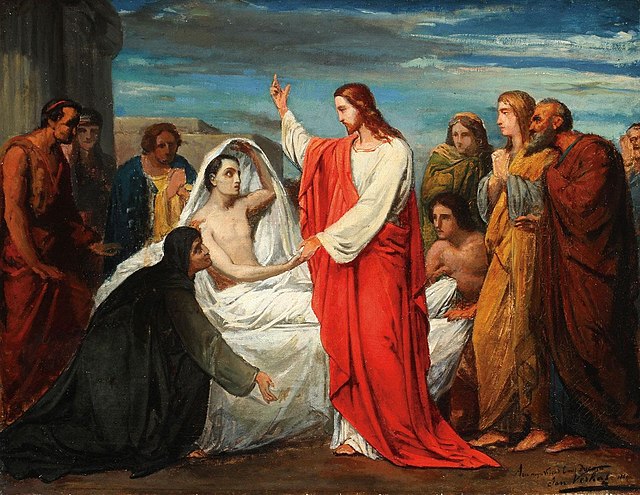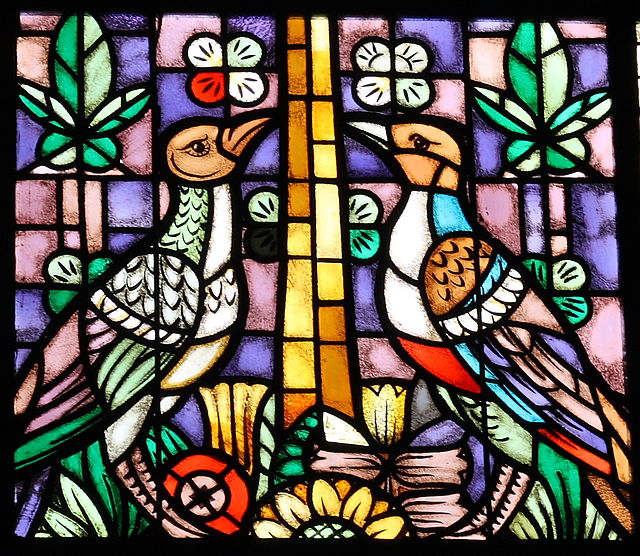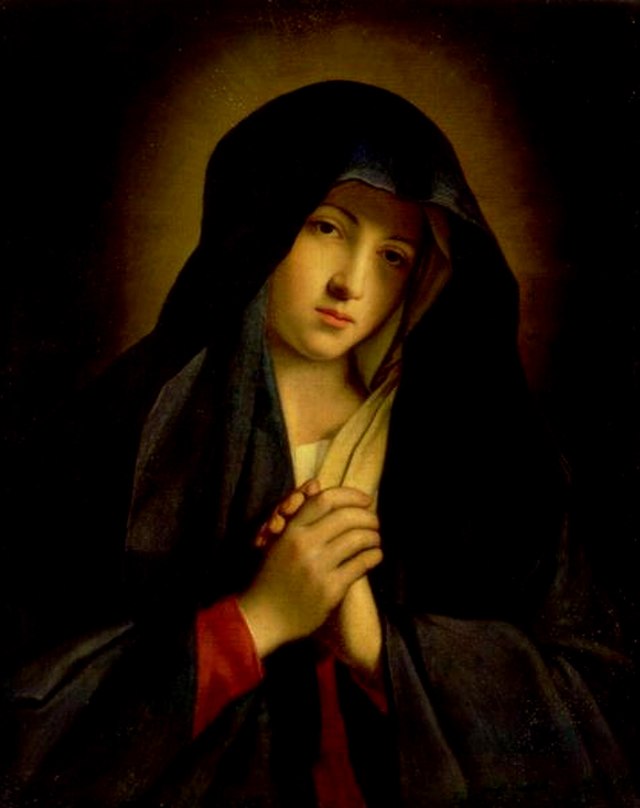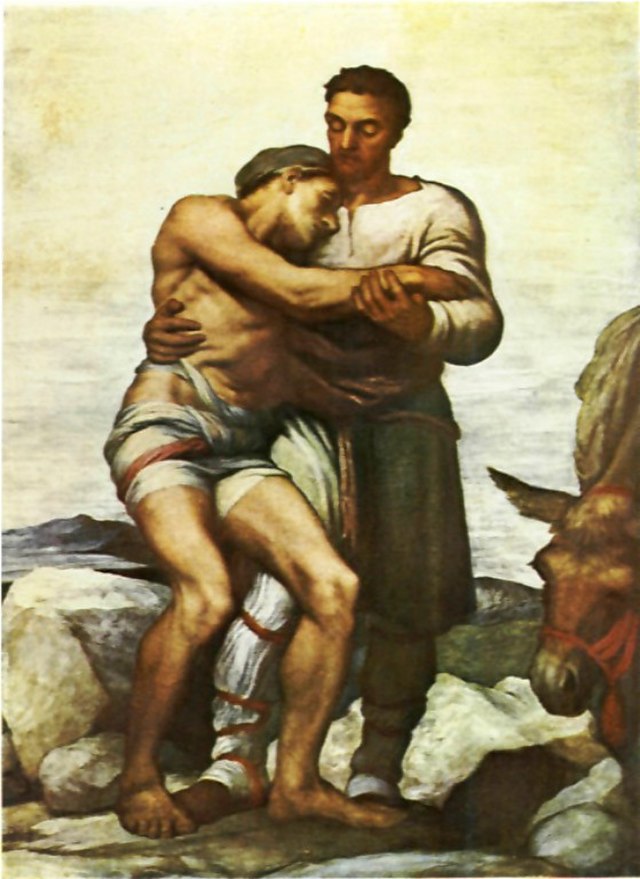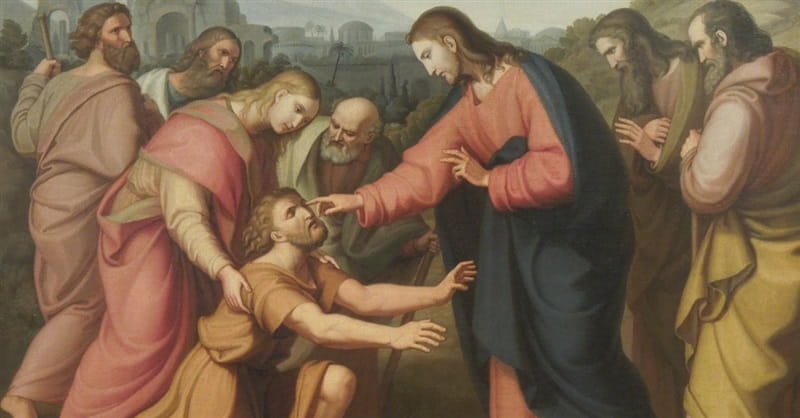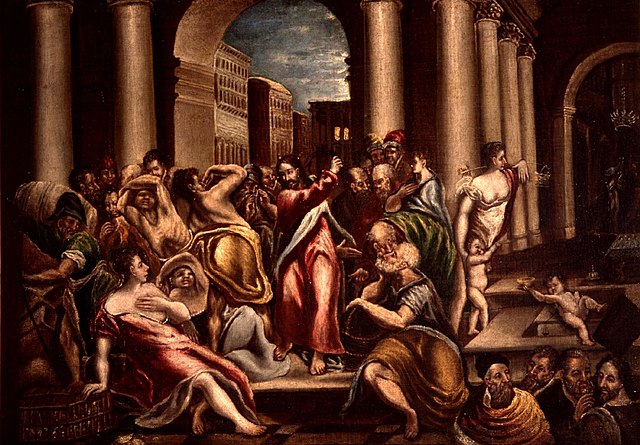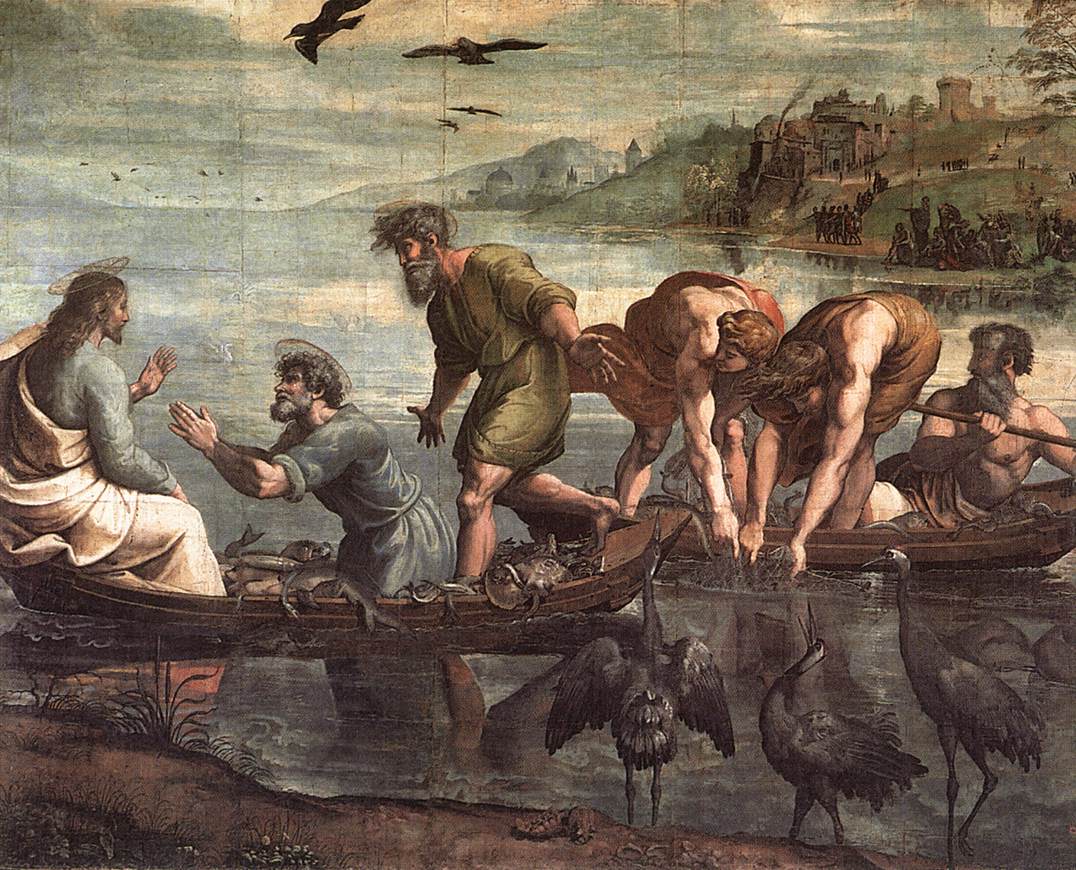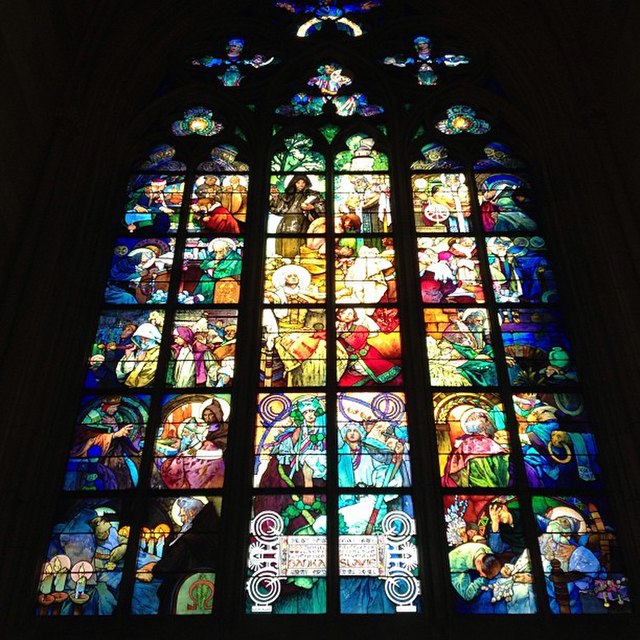
Download The Order of Service for 23 10 08 18th Sunday after Trinity Eucharist
Watch this week's service on YouTube
Read St Mary's Walkley Church News for 8th October 2023
The Readings
Philippians 3.4b-14
even though I, too, have reason for confidence in the flesh.
If anyone else has reason to be confident in the flesh, I have more: circumcised on the eighth day, a member of the people of Israel, of the tribe of Benjamin, a Hebrew born of Hebrews; as to the law, a Pharisee; as to zeal, a persecutor of the church; as to righteousness under the law, blameless.
Yet whatever gains I had, these I have come to regard as loss because of Christ. More than that, I regard everything as loss because of the surpassing value of knowing Christ Jesus my Lord. For his sake I have suffered the loss of all things, and I regard them as rubbish, in order that I may gain Christ and be found in him, not having a righteousness of my own that comes from the law, but one that comes through faith in Christ, the righteousness from God based on faith. I want to know Christ and the power of his resurrection and the sharing of his sufferings by becoming like him in his death, if somehow I may attain the resurrection from the dead.
Not that I have already obtained this or have already reached the goal; but I press on to make it my own, because Christ Jesus has made me his own. Beloved, I do not consider that I have made it my own; but this one thing I do: forgetting what lies behind and straining forward to what lies ahead, I press on towards the goal for the prize of the heavenly call of God in Christ Jesus.
The Parable of the Wicked Tenants
‘Listen to another parable. There was a landowner who planted a vineyard, put a fence around it, dug a wine press in it, and built a watch-tower. Then he leased it to tenants and went to another country. When the harvest time had come, he sent his slaves to the tenants to collect his produce. But the tenants seized his slaves and beat one, killed another, and stoned another. Again he sent other slaves, more than the first; and they treated them in the same way. Finally he sent his son to them, saying, “They will respect my son.” But when the tenants saw the son, they said to themselves, “This is the heir; come, let us kill him and get his inheritance.” So they seized him, threw him out of the vineyard, and killed him. Now when the owner of the vineyard comes, what will he do to those tenants?’ They said to him, ‘He will put those wretches to a miserable death, and lease the vineyard to other tenants who will give him the produce at the harvest time.’
Jesus said to them, ‘Have you never read in the scriptures:
“The stone that the builders rejected
has become the cornerstone;
this was the Lord’s doing,
and it is amazing in our eyes”?
Therefore I tell you, the kingdom of God will be taken away from you and given to a people that produces the fruits of the kingdom. The one who falls on this stone will be broken to pieces; and it will crush anyone on whom it falls.’
When the chief priests and the Pharisees heard his parables, they realized that he was speaking about them. They wanted to arrest him, but they feared the crowds, because they regarded him as a prophet.
Scripture Quotations are from: New Revised Standard Version Bible: Anglicized Edition, copyright © 1989, 1995 National Council of the Churches of Christ in the United States of America. Used by permission. All rights reserved worldwide. http://nrsvbibles.org
The Sermon
By the Revd Canon Dr Alan Billings.
These are some words from today’s gospel:
‘When the chief priests and the pharisees heard his parables, they realised
that he was speaking about them. They wanted to arrest him, but they feared
the crowds, because they regarded him as a prophet.’
The story that Jesus has told the crowds is brutal. But it’s not hard to see
what he was getting at, as the priests and pharisees realised.
Once again, it’s a story about a wealthy landowner. He seeks to add to his
wealth by renting out his vineyards and wine press to tenants while he is
away. His slaves – yes, he has slaves, because slavery has a long history in
our world – the landowner’s slaves have already spent time and effort
planting the vines, building the wine press and making it all secure with a
fence and a watch tower.
Now the tenants must look after the growing crops until the harvest. At
harvest the landowner will take part of the produce and the tenants will divide
the rest between them.
But the tenants have other ideas. They want everything for themselves. So
that when the landowner sends his slaves for his share of the harvest, his
rent, they treat them badly, killing one. Perhaps they didn’t value their lives
that much; they were only slaves. But even when the landowner sends his
son to collect what is due, they have no respect for him either, and kill him as
well.
So what is Jesus getting at when he tells this very violent story?
The priests and the pharisees realise he is telling the parable against them;
and they are not happy.
I think what Jesus is saying to the Jewish religious leaders in this parable is
something like this.
You are like the tenants in this story. Their mistake was to think that the entire
harvest belonged to them and they could do what they liked with all of it; the
landowner was cut out. Your mistake is to think that the harvest of religion, all
the good things that come through faith, belong entirely to you, they are yours
to do with what you like, and you try to cut out even God.
So what did that mean in practice? How did these good people, these
religious people, the priests and the Pharisees, how did they try to cut God
out?
They did it by trying to exclude from God’s presence the very people that God
was most concerned about.
The whole life story of Jesus is about that.
These pious Jews were forever trying to exclude from the faith all those
whom they looked down on or despised but whom God sought to raise up –
and they criticised Jesus when he tried to include people rather than exclude
them.
Sometimes it was children. They tried to stop children being brought to Jesus
so he has to say to them, ‘Let the children come to me and do not hinder
them, for the kingdom of heaven belongs to such as these.’
Sometimes it was foreigners. So Jesus goes out of his way to heal the
servant of a non-Jewish, Roman soldier, a centurion. The centurion had
impressed him by his humility. Although he is a senior military officer, he is
anxious for his servant’s health. Although he can command and order others
about, he says to Jesus, ‘Lord, I am not worthy to have you come under my
roof; but only say the word, and my servant will be healed.’
Sometimes it is women that the priest and pharisees want to exclude. So
Jesus makes a point of speaking to a woman at a well, asking her for water
and having a lively conversation with her. And to make it even more
provocative, she is a Samaritan, a non Jew.
We could go on. All these groups of people – the little children, the foreigner,
the woman - all these, the religious leaders viewed with suspicion when it
came to thinking about who God cared about, who God would have dealings
with. In this respect, the values of Jesus are very different from the attitudes
and values of the leaders, and if those leaders are to re-think their attitudes
and values they need the strong challenge of this violent parable.
Like the tenants in the parable who thought the harvest was theirs to do with
as they pleased, even cutting out the landowner, so these religious leaders
thought religion and the fruits of religion were theirs to do with as they
pleased, cutting out God. Jesus comes to challenge that in both his words
and actions.
If we are to follow him in our day we have to hear that message and apply it
to ourselves.
This is why on the front of our service booklet at St Mary’s, whenever we
come together, we remind ourselves of the values of Jesus which we share.
We are a congregation who are eucharistic – we gather as equals before
God, equally in need of God’s love and forgiveness, the harvest of faith. We
are inclusive – men, women, little children, born here or born somewhere else
– none of that matters. No one is cut out.
Put that together and it makes this a safe place to be with God.
The Prayers
Prepared by Veronica.
In the power of the Spirit and in union with Christ, let us pray to the Father.
Oh God, you sent your Son to teach us how to live according to your will, help us to listen to his
teaching and reflect on his life and death, so we may always behave as you would wish us to. May
we be generous to our friends, both near and far, and never forget the needs of those experiencing
real poverty or calamitous natural events like earthquakes, drought or floods. May we never close
our borders or doors to those in real need or who suffer oppression simply for who they are. Guide
the leaders of the rich world to act according to your will.
Lord, in your mercy,
Hear our prayer.
We pray for the Church worldwide, for our archbishops and our bishops Pete and Sophie, and for all
Christian leaders of whatever denomination, that they may always show the right form of leadership
in accordance with the teachings of Christ. We give thanks for all the many Christian organisations
which work for the greater good of all people. We join today with our partner church of St Mark’s as
they celebrate 60 years of re-opening after their church was bombed in World War 2, and give you
thanks for our partnership with St Mark’s and St John’s which has enabled us to maintain our service
to the people of Walkley.
Lord, in your mercy,
Hear our prayer.
We pray for our City of Sheffield, and for our suburb of Walkley, giving you thanks for the sense of
community in our urban village. We remember also before you all our fellow citizens who are
struggling at this time to meet their needs.
Lord, in your mercy,
Hear our prayer.
We pray for all who are ill at this time, remembering James’ mother, Joe, and all others known to us
in special need of your healing grace at this time when Covid cases are increasing.. We give you
thanks for the work of our doctors, nurses and social workers and ask that you support them in their
healing and supportive work which can at times be very stressful. In a moment of quiet we
remember by name all known to us who are suffering at this time.
Lord, in your mercy,
Hear our prayer.
We remember before you all who have died recently, thinking especially of Keith and Margaret. We
ask for your comfort for those who mourn their loss. In a moment of quiet we think of all those we
have known and loved and see no more.
Lord, in your mercy,
Hear our prayer.
Rejoicing in the fellowship of Mary, Mark John and all your saints, we commend ourselves and the
whole creation to your unfailing love.
Merciful Father,
Accept these prayers for the sake of your only Son, our Saviour Jesus Christ
Amen.



